- Home
- William Shakespeare
Hamlet Page 6
Hamlet Read online
Page 6
Holds such an enmity with blood of man
That swift as quicksilver71 it courses through
The natural gates and alleys of the body,
And with a sudden vigour it doth posset73
And curd, like eager74 droppings into milk,
The thin and wholesome blood: so did it mine,
And a most instant tetter barked about76,
Most lazar-like77, with vile and loathsome crust,
All my smooth body.
Thus was I, sleeping, by a brother's hand
Of life, of crown and queen, at once dispatched80:
Cut off even in the blossoms of my sin,
Unhouseled, disappointed, unaneled82,
No reckoning made, but sent to my account83
With all my imperfections on my head.
O horrible, O horrible, most horrible!
If thou hast nature86 in thee, bear it not;
Let not the royal bed of Denmark be
A couch for luxury88 and damned incest.
But, howsoever thou pursuest this act,
Taint90 not thy mind nor let thy soul contrive
Against thy mother aught91; leave her to heaven
And to those thorns that in her bosom lodge,
To prick and sting her. Fare thee well at once;
The glow-worm shows the matin94 to be near,
And 'gins to pale his uneffectual95 fire.
Adieu, adieu, Hamlet: remember me.
Exit
HAMLET O all you host97 of heaven! O earth! What else?
And shall I couple98 hell? O, fie! Hold, my heart;
And you, my sinews, grow not instant old,
But bear me stiffly up. Remember thee?
Ay, thou poor ghost, while memory holds a seat
In this distracted globe102. Remember thee?
Yea, from the table103 of my memory
I'll wipe away all trivial fond records104,
All saws of books, all forms, all pressures105 past
That youth and observation copied there;
And thy commandment all alone shall live
Within the book and volume of my brain,
Unmixed with baser matter: yes, yes, by heaven!
O most pernicious110 woman!
O villain, villain, smiling, damned villain!
My tables,
My tables: meet113 it is I set it down
That one may smile and smile and be a villain;
At least I'm sure it may be so in Denmark.
Writes
So, uncle, there you are. Now to my word116:
It is 'Adieu, adieu, remember me.'
I have sworn't.
Within
HORATIO AND MARCELLUS My lord, my lord!
Enter Horatio and Marcellus
MARCELLUS Lord Hamlet!
HORATIO Heaven secure him.
HAMLET So be it.
HORATIO Hillo, ho, ho, my lord!
HAMLET Hillo, ho, ho, boy! Come, bird, come124.
MARCELLUS How is't125, my noble lord?
HORATIO What news, my lord?
HAMLET O, wonderful127!
HORATIO Good my lord, tell it.
HAMLET No, you'll reveal it.
HORATIO Not I, my lord, by heaven.
MARCELLUS Nor I, my lord.
HAMLET How say you, then, would heart of man once132 think it?
But you'll be secret?
BOTH Ay, by heaven, my lord.
HAMLET There's ne'er a villain dwelling in all Denmark
But he's an arrant136 knave.
HORATIO There needs no ghost, my lord, come from the grave
To tell us this.
HAMLET Why, right, you are i'th'right;
And so, without more circumstance140 at all,
I hold it fit that we shake hands and part:
You, as142 your business and desires shall point you,
For every man has business and desire,
Such as it is: and for mine own poor part,
Look you, I'll go pray.
HORATIO These are but wild and whirling words, my lord.
HAMLET I'm sorry they offend you, heartily:
Yes, faith, heartily.
HORATIO There's no offence, my lord.
HAMLET Yes, by Saint Patrick150, but there is, Horatio,
And much offence too. Touching this vision here,
It is an honest152 ghost, that let me tell you:
For your desire to know what is between us,
O'ermaster't154 as you may. And now, good friends,
As you are friends, scholars and soldiers,
Give me one poor request.
HORATIO What is't, my lord? We will.
HAMLET Never make known what you have seen tonight.
BOTH My lord, we will not.
HAMLET Nay, but swear't.
HORATIO In faith, my lord, not I161.
MARCELLUS Nor I, my lord, in faith.
HAMLET Upon my sword163.
Holds out his sword
MARCELLUS We have sworn, my lord, already.
HAMLET Indeed, upon my sword, indeed.
GHOST Swear.
Ghost cries under the stage166
HAMLET Ah ha, boy, say'st thou so? Art thou there,
truepenny168?--
Come on, you hear this fellow in the cellarage169:
Consent to swear.
HORATIO Propose the oath, my lord.
HAMLET Never to speak of this that you have seen,
Swear by my sword.
GHOST Swear.
They swear
HAMLET Hic et ubique?175 Then we'll shift our ground.
Moves
Come hither, gentlemen,
And lay your hands again upon my sword:
Never to speak of this that you have heard,
Swear by my sword.
GHOST Swear.
They swear
HAMLET Well said, old mole. Canst work i'th'ground so fast?
A worthy pioneer! Once more remove182, good friends.
HORATIO O, day and night, but this is wondrous strange!
HAMLET And therefore as a stranger184 give it welcome.
Aside to Horatio?
There are more things in heaven and earth, Horatio,
Than are dreamt of in our philosophy.-- But come,
Here, as before, never, so help you mercy187,
How strange or odd soe'er188 I bear myself --
As I perchance hereafter shall think meet
To put an antic190 disposition on --
That you, at such time seeing me, never shall,
With arms encumbered thus, or thus headshake192,
Or by pronouncing of some doubtful193 phrase,
As 'Well, we know' or 'We could, an if194 we would'
Or 'If we list to speak' or 'There be, an if they might'195
Or such ambiguous giving out, to note196
That you know aught of me: this not to do,
So grace and mercy at your most need help you. Swear.
GHOST Swear.
They swear
HAMLET Rest, rest, perturbed spirit!-- So, gentlemen,
With all my love I do commend me201 to you:
And what202 so poor a man as Hamlet is
May do t'express his love and friending203 to you,
God willing, shall not lack. Let us go in together:
And still205 your fingers on your lips, I pray.
The time is out of joint206: O, cursed spite
That ever I was born to set it right!
Nay, come, let's go together.
Exeunt
Act 2 Scene 1
running scene 5
Enter Polonius and Reynaldo
POLONIUS Give him this money and these notes, Reynaldo.
Gives money and papers
REYNALDO I will, my lord.
POLONIUS You shall do marvellous3 wisely, good Reynaldo,
Before you4 visit him, you make inquiry
&nbs
p; Of his behaviour.
REYNALDO My lord, I did intend it.
POLONIUS Marry, well said; very well said. Look you, sir,
Inquire me first what Danskers8 are in Paris,
And how, and who, what means and where they keep9,
What company, at what expense, and finding
By this encompassment and drift11 of question
That they do know my son, come you more nearer12
Than your particular demands will touch it:
Take you14, as 'twere, some distant knowledge of him,
As thus, 'I know his father and his friends
And in part him.' Do you mark this, Reynaldo?
REYNALDO Ay, very well, my lord.
POLONIUS 'And in part him, but', you may say, 'not well,
But if't be he I mean, he's very wild;
Addicted20 so and so', and there put on him
What forgeries you please: marry, none so rank21
As may dishonour him -- take heed of that --
But, sir, such wanton, wild and usual slips23
As are companions noted and most known
To youth and liberty.
REYNALDO As gaming26, my lord.
POLONIUS Ay, or drinking, fencing, swearing, quarrelling,
Drabbing28: you may go so far.
REYNALDO My lord, that would dishonour him.
POLONIUS Faith, no, as you may season it in the charge30.
You must not put another scandal on him,
That he is open to incontinency32;
That's not my meaning: but breathe his faults so quaintly33
That they may seem the taints of liberty34,
The flash and outbreak of a fiery mind,
A savageness in unreclaimed36 blood,
Of general assault37.
REYNALDO But, my good lord--
POLONIUS Wherefore should you do this?
REYNALDO Ay, my lord, I would know that.
POLONIUS Marry, sir, here's my drift41,
And I believe, it is a fetch of warrant42:
You laying these slight sullies on my son,
As 'twere a thing a little soiled i'th'working44,
Mark you, your party in converse, him you would sound45,
Having ever seen in the prenominate46 crimes
The youth you breathe of47 guilty, be assured
He closes with you in this consequence48:
'Good sir' or so, or 'friend' or 'gentleman',
According to the phrase and the addition50
Of man and country.
REYNALDO Very good, my lord.
POLONIUS And then, sir, does he this -- he does -- what
was I about to say? I was about to say something:
where did I leave?
REYNALDO At 'closes in the consequence' at 'friend or so'
and 'gentleman'.
POLONIUS At 'closes in the consequence', ay, marry58.
He closes with you thus: 'I know the gentleman,
I saw him yesterday, or t'other day',
Or then, or then, with such and such; and, as you say,
There was he gaming, there o'ertook in's rouse62,
There falling out at tennis, or perchance,
'I saw him enter such a house of sale',
Videlicet65, a brothel, or so forth.
See you now;
Your bait of falsehood takes this carp67 of truth:
And thus do we of wisdom and of reach68,
With windlasses and with assays of bias69,
By indirections find directions70 out:
So by my former lecture71 and advice,
Shall you my son. You have72 me, have you not?
REYNALDO My lord, I have.
POLONIUS God buy74 you; fare you well.
REYNALDO Good my lord.
POLONIUS Observe his inclination in yourself76.
REYNALDO I shall, my lord.
POLONIUS And let him ply his music78.
REYNALDO Well79, my lord.
Exit
Enter Ophelia
POLONIUS Farewell.-- How now, Ophelia, what's the
matter?
OPHELIA Alas, my lord, I have been so affrighted!
POLONIUS With what, in the name of heaven?
OPHELIA My lord, as I was sewing in my chamber,
Lord Hamlet, with his doublet all unbraced85,
No hat86 upon his head, his stockings fouled,
Ungartered, and down-gyved87 to his ankle,
Pale as his shirt, his knees knocking each other,
And with a look so piteous in purport89
As if he had been loosed out of hell
To speak of horrors -- he comes before me.
POLONIUS Mad for thy love?
OPHELIA My lord, I do not know, but truly I do fear it.
POLONIUS What said he?
OPHELIA He took me by the wrist and held me hard;
Then goes he to the length of all his arm96,
And with his other hand thus o'er his brow
He falls to such perusal of my face
As99 he would draw it. Long stayed he so.
At last, a little shaking of mine arm
And thrice his head thus waving up and down,
He raised a sigh so piteous and profound
That it did seem to shatter all his bulk
And end his being: that done, he lets me go,
And, with his head over his shoulders turned,
He seemed to find his way without his eyes,
For out o'doors he went without their help,
And to the last, bended their light108 on me.
POLONIUS Go with me: I will go seek the king.
This is the very ecstasy110 of love,
Whose violent property fordoes itself111
And leads the will to desperate undertakings
As oft as any passion under heaven
That does afflict our natures. I am sorry.
What, have you given him any hard words of late?
OPHELIA No, my good lord, but as you did command,
I did repel his letters and denied
His access to me.
POLONIUS That hath made him mad.
I am sorry that with better speed120 and judgement
I had not quoted121 him: I feared he did but trifle,
And meant to wreck thee. But beshrew my jealousy122!
It seems it is as proper to our age123
To cast beyond ourselves124 in our opinions
As it is common for the younger sort
To lack discretion. Come, go we to the king:
This must be known, which, being kept close, might move127
More grief to hide than hate to utter love.
Exeunt
Act 2 Scene 2
running scene 6
Enter King, Queen, Rosencrantz and Guildenstern, with others
KING Welcome, dear Rosencrantz and Guildenstern.
Moreover that2 we much did long to see you,
The need we have to use you did provoke
Our hasty sending. Something have you heard
Of Hamlet's transformation, so I call it,
Since not th'exterior nor the inward man
Resembles that it was. What it should be,
More than his father's death, that thus hath put him
So much from th'understanding of himself,
I cannot deem10 of. I entreat you both,
That, being of so young days brought up with him,
And since so neighboured to his youth and humour12,
That you vouchsafe your rest13 here in our court
Some little time, so by your companies
To draw him on to pleasures, and to gather
So much as from occasions16 you may glean,
Whether aught, to us unknown, afflicts him thus,
That, opened18, lies within our remedy.
GERTRUDE Good gentlemen, he hath much talked of you,
And sure I am two men there are not
living
To whom he more adheres21. If it will please you
To show us so much gentry22 and good will
As to expend your time with us awhile,
For the supply and profit24 of our hope,
Your visitation shall receive such thanks
As fits a king's remembrance.
ROSENCRANTZ Both your majesties
Might, by the sovereign power you have of28 us,
Put your dread pleasures29 more into command
Than to entreaty.
GUILDENSTERN We both obey,
And here give up ourselves in the full bent32
To lay our services freely at your feet,
To be commanded.
KING Thanks, Rosencrantz and gentle Guildenstern.
GERTRUDE Thanks, Guildenstern and gentle Rosencrantz.
And I beseech you instantly to visit
My too much changed son.-- Go, some of ye,
And bring the gentlemen where Hamlet is.
GUILDENSTERN Heavens make our presence and our practices40
Pleasant and helpful to him.
Exeunt [Ros. and Guild. with some Attendants]
GERTRUDE Amen.
Enter Polonius
POLONIUS Th'ambassadors from Norway, my good lord,
Are joyfully returned.
KING Thou still45 hast been the father of good news.
POLONIUS Have I, my lord? I assure you, my good liege,
I hold47 my duty, as I hold my soul,
Both to my God and to my gracious king:
And I do think, or else this brain of mine
Hunts not the trail of policy50 so sure
As I have used to do, that I have found
The very cause of Hamlet's lunacy.
KING O, speak of that: that I do long to hear.
POLONIUS Give first admittance to th'ambassadors:
My news shall be the fruit55 to that great feast.
KING Thyself do grace56 to them and bring them in.--
[Exit Polonius]
He tells me, my sweet queen, that he hath found
The head and source of all your son's distemper58.
GERTRUDE I doubt it is no other but the main59:
His father's death and our o'erhasty marriage.
Enter Polonius, Voltemand and Cornelius
KING Well, we shall sift him61.-- Welcome, good friends.
Say, Voltemand, what from our brother Norway?
VOLTEMAND Most fair return of greetings and desires63.
Upon our first64, he sent out to suppress
His nephew's levies, which to him appeared
To be a preparation gainst the Polack66,
But, better looked into, he truly found
It was against your highness: whereat grieved
That so his sickness, age and impotence69
Was falsely borne in hand, sends out arrests70
On Fortinbras, which he, in brief, obeys,
Receives rebuke from Norway, and in fine72
Makes vow before his uncle never more
To give th'assay of arms74 against your majesty.
Whereon old Norway, overcome with joy,
Gives him three thousand crowns76 in annual fee
And his commission77 to employ those soldiers,
So levied as before, against the Polack,
With an entreaty, herein further shown,
Gives a paper
That it might please you to give quiet pass80

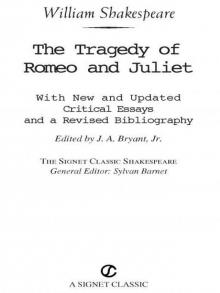 Romeo and Juliet
Romeo and Juliet As You Like It (Folger Shakespeare Library)
As You Like It (Folger Shakespeare Library)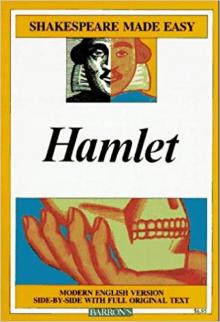 Hamlet
Hamlet Richard II (Folger Shakespeare Library)
Richard II (Folger Shakespeare Library) Macbeth
Macbeth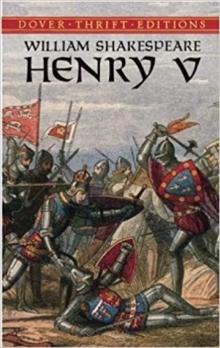 Henry V
Henry V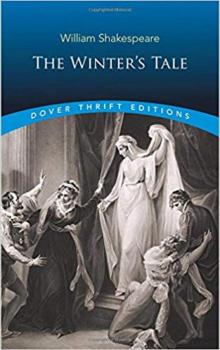 The Winter's Tale
The Winter's Tale The Taming of the Shrew
The Taming of the Shrew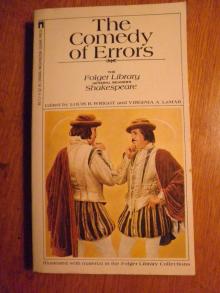 The Comedy of Errors
The Comedy of Errors King Lear (Folger Shakespeare Library)
King Lear (Folger Shakespeare Library)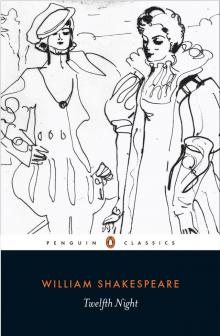 Twelfth Night
Twelfth Night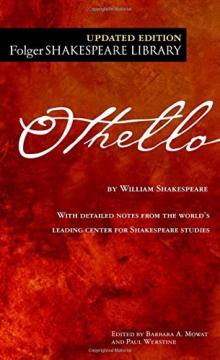 Othello
Othello The Two Gentlemen of Verona
The Two Gentlemen of Verona Henry IV, Part 1 (Folger Shakespeare Library)
Henry IV, Part 1 (Folger Shakespeare Library) King John/Henry VIII (Signet Classics)
King John/Henry VIII (Signet Classics)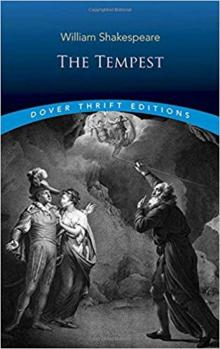 The Tempest
The Tempest Titus Andronicus (Dover Publications)
Titus Andronicus (Dover Publications)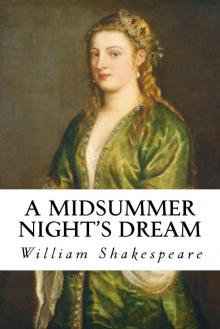 A Midsummer Night's Dream
A Midsummer Night's Dream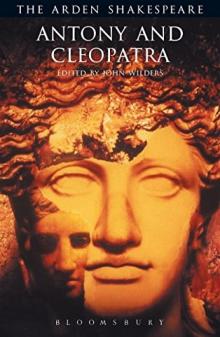 Antony and Cleopatra (Arden Shakespeare: Third Series)
Antony and Cleopatra (Arden Shakespeare: Third Series)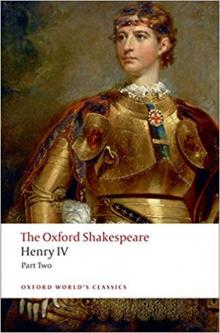 The Oxford Shakespeare: Henry IV, Part 2 (Oxford World's Classics)
The Oxford Shakespeare: Henry IV, Part 2 (Oxford World's Classics)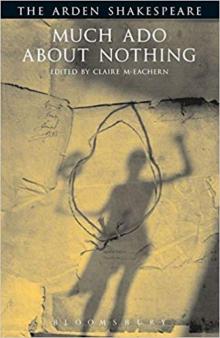 Much Ado About Nothing (Arden Shakespeare: Third Series)
Much Ado About Nothing (Arden Shakespeare: Third Series) All's Well That Ends Well
All's Well That Ends Well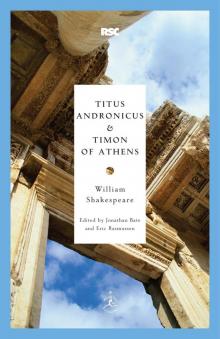 Titus Andronicus & Timon of Athens
Titus Andronicus & Timon of Athens Richard III (Modern Library Classics)
Richard III (Modern Library Classics) Coriolanus
Coriolanus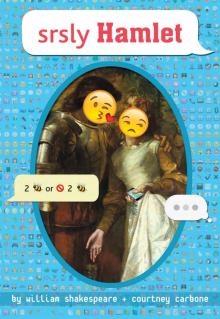 srsly Hamlet (OMG Shakespeare)
srsly Hamlet (OMG Shakespeare)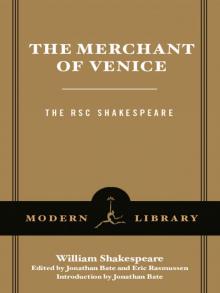 The Merchant of Venice
The Merchant of Venice Richard III
Richard III Richard II
Richard II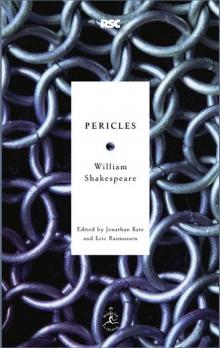 Pericles
Pericles As You Like It
As You Like It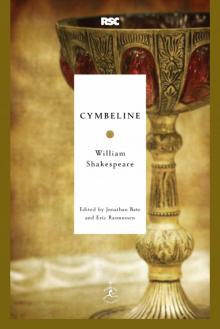 Cymbeline
Cymbeline Alls Wel that ends Well
Alls Wel that ends Well YOLO Juliet
YOLO Juliet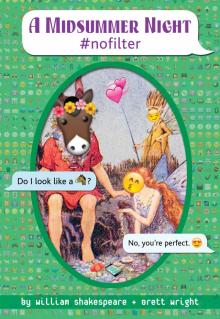 A Midsummer Night #nofilter
A Midsummer Night #nofilter Love's Labour's Lost
Love's Labour's Lost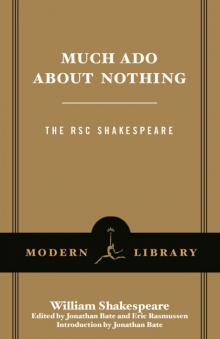 Much Ado About Nothing
Much Ado About Nothing Romeo & Juliet & Vampires
Romeo & Juliet & Vampires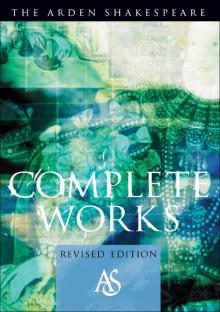 The Arden Shakespeare Complete Works
The Arden Shakespeare Complete Works Julius Caesar
Julius Caesar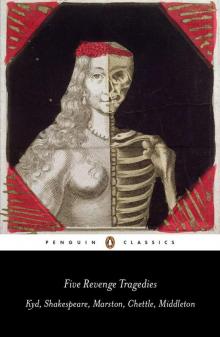 Five Revenge Tragedies: The Spanish Tragedy, Hamlet, Antonio's Revenge, The Tragedy of Hoffman, The Revenger's Tragedy (Penguin Classics)
Five Revenge Tragedies: The Spanish Tragedy, Hamlet, Antonio's Revenge, The Tragedy of Hoffman, The Revenger's Tragedy (Penguin Classics)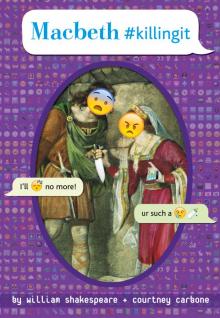 Macbeth #killingit
Macbeth #killingit The Oxford Shakespeare: The Complete Works
The Oxford Shakespeare: The Complete Works Hamlet, Prince of Denmark (Collins edition)
Hamlet, Prince of Denmark (Collins edition) King John & Henry VIII
King John & Henry VIII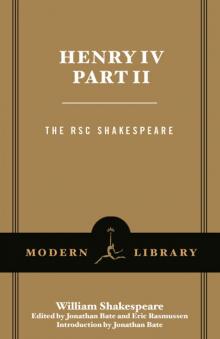 Henry IV, Part 2
Henry IV, Part 2 Complete Plays, The
Complete Plays, The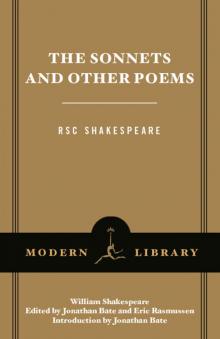 The Sonnets and Other Poems
The Sonnets and Other Poems Antony and Cleopatra
Antony and Cleopatra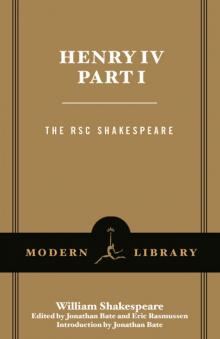 Henry IV, Part 1
Henry IV, Part 1 Is This a Dagger Which I See Before Me?
Is This a Dagger Which I See Before Me? The Complete Works of William Shakespeare In Plain and Simple English (Translated)
The Complete Works of William Shakespeare In Plain and Simple English (Translated) The Sonnets
The Sonnets